On Monday September 26, I visited the Congo Basin Water Resources Research Center (CRREBaC) on the website of the University of Kinshasa (UNIKIN). Via their website - crrebac.org - I invite you to discover this unique center whose general mission is « to contribute to the sustainable management and development of water resources in the Congo Basin through research that provides scientifically acceptable information and feasible solutions to emerging water resource problems». In this article, I would like to talk to you in particular about one of their programs which justified my trip.
The CRREBaC is directed by the Professor Dr Raphaël Tshimanga of which you will find the impressive CV on the website. He is a hydrologist. Recently, he was ranked second in the TOP 10 of the best senior researchers at the University of Kinshasa after the eminent Professor Dr Jean-Jacques Muyembe. In his area of expertise, understanding the water cycle of the Congo Basin, Raphaël Tshimanga is a leading authority in Africa recognized by his peers.
Our first collaboration dates back to 2018 for the 5th edition of Science and Technology Week. We invited him to give a conference on the Transaqua project, this famous project to transfer water from the Congo River to Lake Chad which is drying up. He spoke again last April for our 9th edition where he spoke on “New Space Observation Technologies and Applications to the Management of Water Resources in the Congo Basin”.
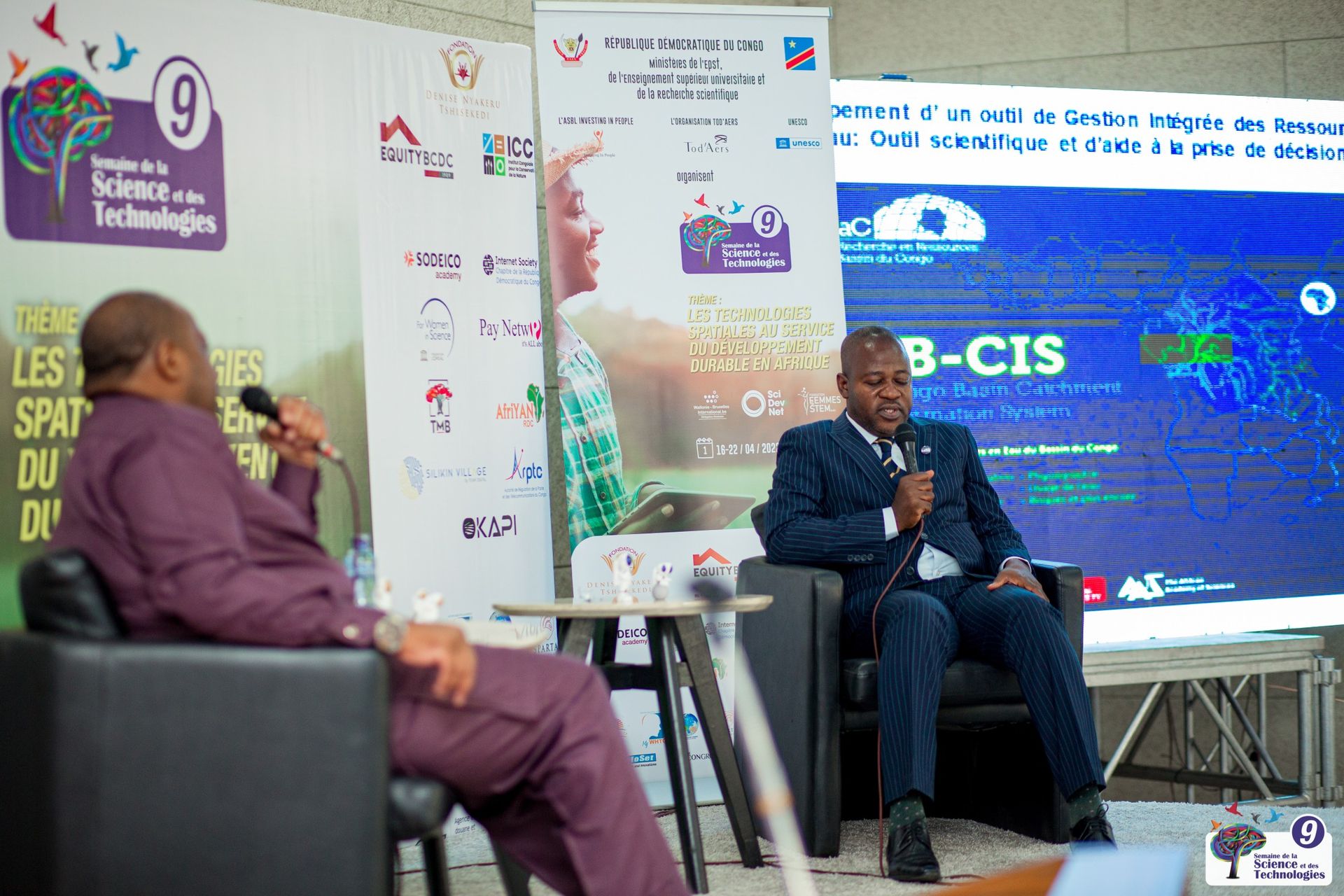
In January 2022, Professor Tshimanga launched the first Master's Program (MSc/DEA) in Water Resources with five specialties: Water and Biodiversity; Water and Energy; Water and Navigation; Potable water ; Sanitation, Irrigation and Drainage. The first cohort (2021-2022) has 40 learners. And he also supervises 3 doctoral students.
I had the chance to meet these learners during my visit. As luck would have it, I arrived when they were having class with Professor Dr Thierry Tangou, a chemist specializing in environmental sciences with a focus on sanitation and the environment. Professor Tangou was recently Acting General Commissioner at the General Atomic Energy Commission (CGEA) and Acting Director General of the Kinshasa Regional Nuclear Studies Center (CREN-K). Imagine my joy!
The cohort is divided into two, Masters and Doctoral students. There are 6 women and 34 men in Masters; 1 woman and 2 men PhD students. Professor Tshimanga knows that I am sensitive to this aspect and therefore never fails to point out to me the proportion of women and the efforts made to encourage them. Thank you for that !
What is interesting about this group is its heterogeneity. First, the origins. At the Master level, we have 26 learners from Kinshasa, 12 from the provinces (Kongo Central, Mai Ndombe, Mongala, Maniema, Sankuru and Kwango) and 2 internationals (Algeria and Niger); At the Doctorate level, we find 2 internationals (Algeria and Niger) and 1 Congolese. To follow this program, the internationals benefited from a scholarship from the European Union as part of the Intra-African Academic Mobility Program in Water Resources. When I heard them, I was struck by the positive appreciation they had of the quality of the training and supervision they received, and their pleasure of being in Kinshasa. The words of learners from the provinces were just as eloquent although their situation was much less easy. I'll come back to it.
The second aspect is their basic training. Among the 40 Master's learners, we have 11 agricultural engineers, 6 civil and hydraulic engineers (polytechnic), 3 construction engineers, 7 environmentalists, 2 mathematicians, 1 hydrologist, 2 economists, 1 geographer, 2 chemists, 2 geologists and 3 petroleum engineers. . They were selected on file from around a hundred applications. Notice the diversity and complementarity of their profile to address issues related to water resources management. For me, this is the strength of this program and the model to follow from the secondary level.
Today, teaching and research in the DRC must break down barriers between disciplines, departments and faculties if we want to creatively address the problems of our societies and the challenges of our civilization. This is the whole meaning of the reform of science and mathematics teaching which was initiated at the level of the Ministry of Primary, Secondary and Technical Education with the PEQPESU project.
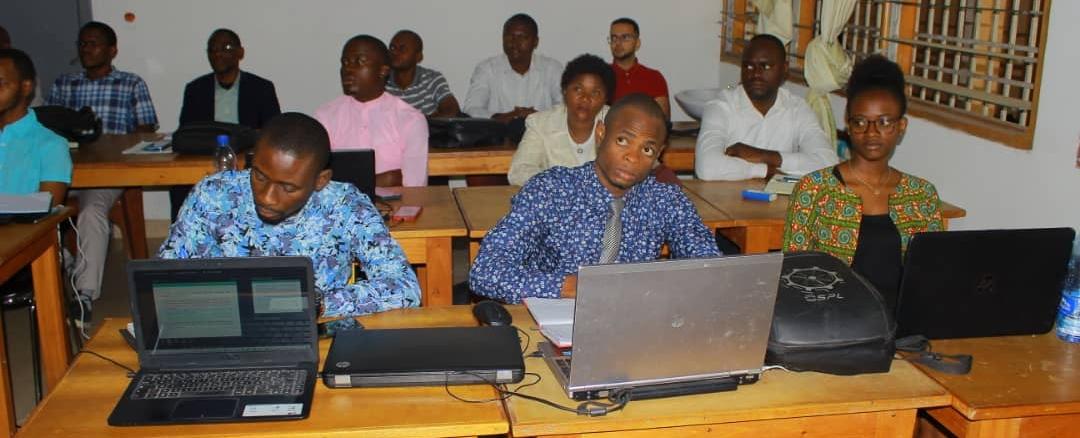
During my visit, the learner representative, Cynthia Mwamba (Building and Public Works Engineer), gave an excellent presentation of this group and its dynamics. What is striking is the spirit that animates them. The spirit of the pioneers. Men and women who know that they will have a major role to play in their communities, who fear difficulties, but are determined to get there.
And difficulties, yes, there are some and the group did not fail to present them to me. Cynthia recounted an anecdote where she was influenced by one of their colleagues from the provinces who remained motivated despite the countless difficulties of studying in Kinshasa without any support. In addition to this need for scholarships to support learners from the provinces, Cynthia indicated the need for logistical support for field trips and internships in public or private institutions in the DRC or abroad. As for the organizers, they are looking for a robust solution for the online course system for teaching in virtual mode and support for the development of curricula for the five specializations of the program.
This program is unique in Central Africa. The DRC, Africa and the World need more African specialists in water resources management in an area as strategic as the Congo Basin which covers 9 countries and is home to the 2nd lung of the planet. Notice in the image below the difference in flow between the Congo Basin and the other famous Nile Basin! The issue is our survival.
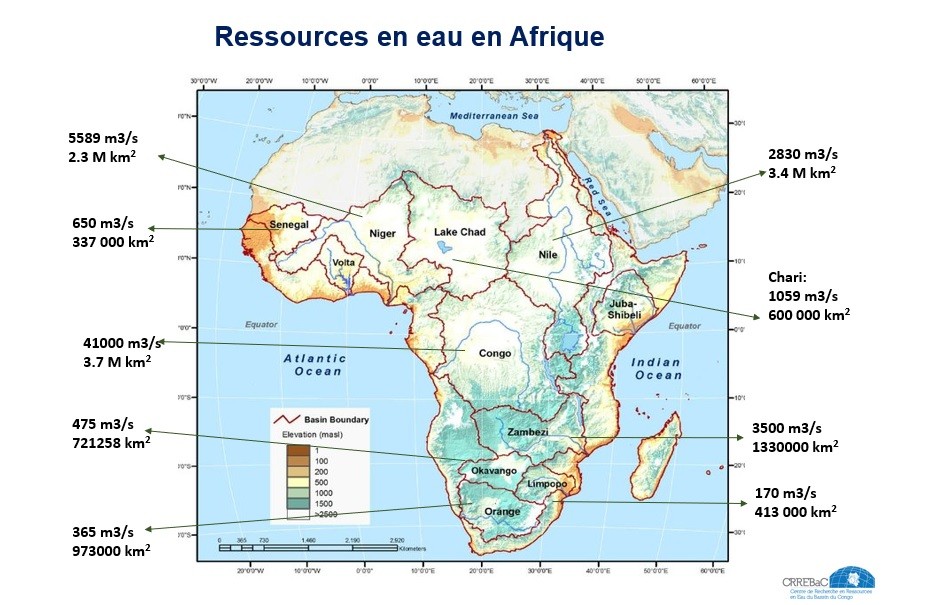
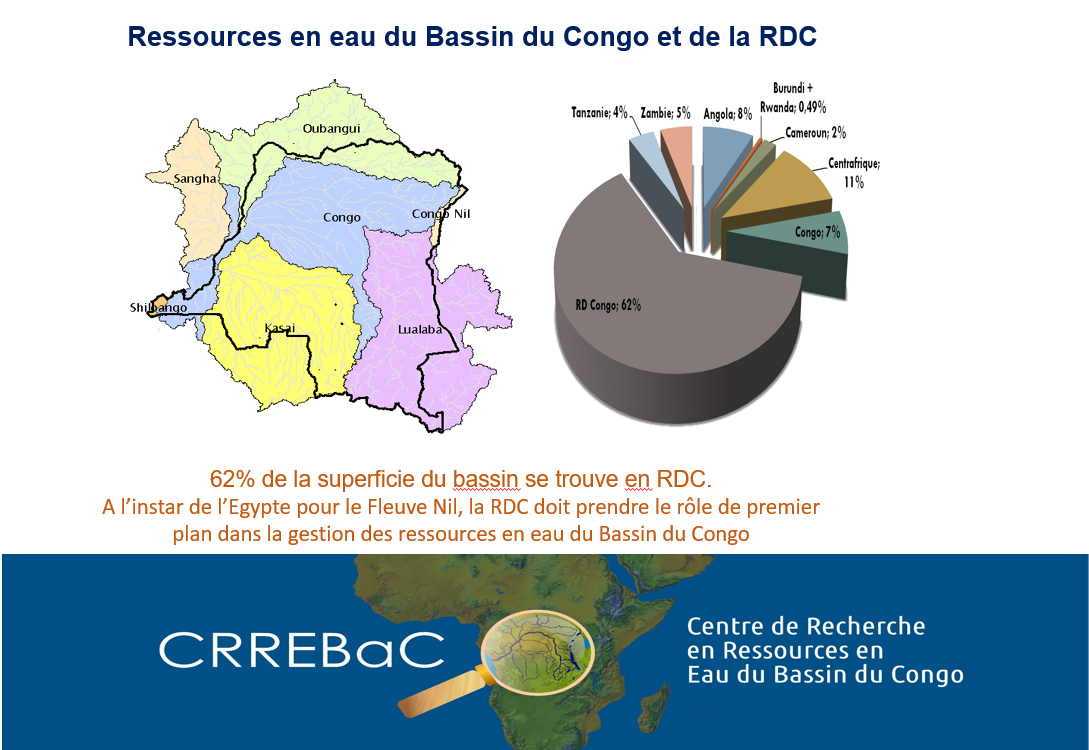
You will have understood, I am talking to you about it to mobilize you. Do you have a solution to offer to their difficulties? Do you want to know more about water resources management? Would you like to participate in this beautiful human work? If so, I invite you to contact the organizers. Their contacts are listed on their website.
In the DRC, it should be noted that the Professor Tshimanga is not the only one to campaign for the sustainable management of water resources. There is also Professor Dr Céline Sikulisimwa, chemist, who launched last March a “River SOS” for better management of the rivers in the city of Kinshasa which are currently asphyxiated. Below I share with you the video she produced to alert you to the situation.
Finally, before concluding, I would like to mention that CRREBaC played a leading role in the study of the recent pollution of the Tshikapa and Kasaï rivers following industrial activity. A scientific article is in the process of being published and we are proud to have contributed to the process of collecting data in the field.
A few years ago, I followed a report on television news with Ms. Jeannine Mabunda at the time President of the National Assembly of the DRC. She inaugurated a water borehole in a town that did not have access to running water. She had these words for the women of this community which have never left my mind: “we mothers, we know that everything (life) begins with water”!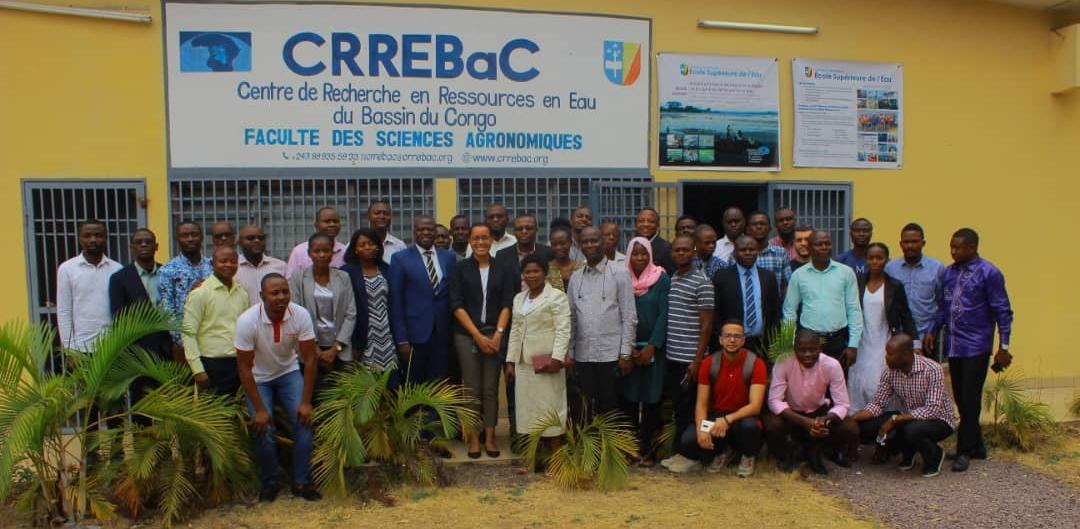
Science is fun, join us !
It all starts with water!